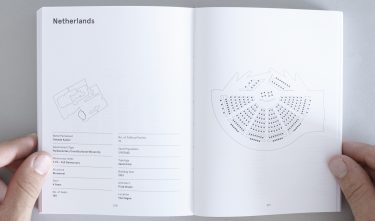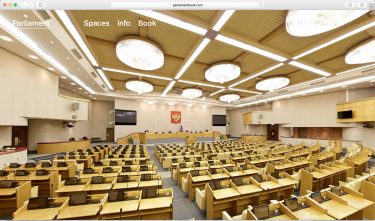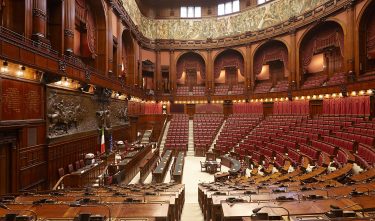XML
Parliament
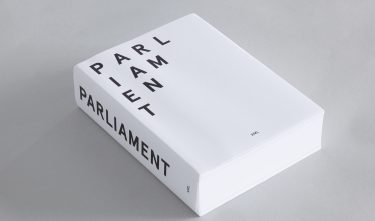
The project
To what extent does the design of a space influence the debate that is being conducted there? The book entitled Parliament describes and analyses the plenary halls of the parliaments of 193 member states of the United Nations. Structured as a lexicon – from Afghanistan to Zimbabwe – ‘Parliament’ makes it possible to compare all the parliamentary buildings in the world with each other for the first time. The book is the result of a design study analysing the architecture of spaces used for political debate, which was carried out by architectural agency XML between 2010 and 2016. You can also go on a virtual tour of a number of political assembly halls via the website called parliamentbook.com, which XML launched in parallel with the book. In spite of major differences between countries, cultures and traditions, ‘Parliament’ shows that there are only five types of assembly hall where parliaments meet, the majority of which have not changed since the 19th century. The book questions the role of design in the development of new, more contemporary alternatives for spaces of political gathering.
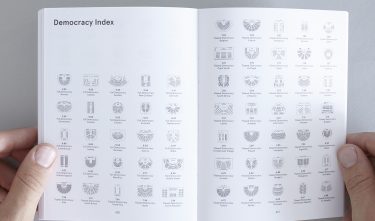
Committee
In a world that has fundamentally changed and at a time when confidence in democracy is under pressure, ‘Parliament’ presents national parliaments as places which are more than just a symbolic representation of a national identity. The book homes in on the five most successful architectural designs used for parliamentary buildings. It raises the question of whether those designs are still appropriate in a modern democracy. This study speculates about the role played by design in the future of democracy and the reinvention of political culture. The impressive overview of data is exemplary in the committee’s opinion and will almost certainly lead to the further involvement of designers in parliamentary buildings and new models of democracy.
